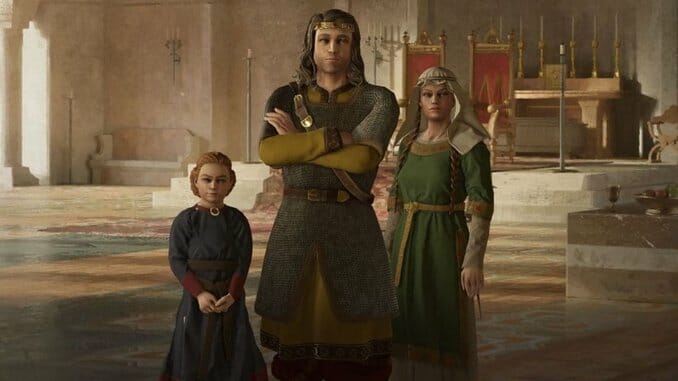Like Sands Through The Hour Glass, So Are The Days of Crusader Kings III
Its Combo of Emergent Narrative and Sordid Drama Is the Best Strategy

It didn’t take long for my first experience with Crusader Kings III to get dramatic. It was about an hour into my playthrough of the tutorial. My wife, from the court of Leon, had been distant lately. And she’d gotten pregnant in her home court while I was away in Ireland and at war. Suspecting that she was cheating on me, I sent a spy to her duchy, hoping to find evidence of her infidelity, and the answer was more than I bargained for. Not only had she been unfaithful, but she was also sleeping with her brother. Worse, he was the true father of our children. And even as I turned a blind eye, too afraid to disrupt my fledgling kingdom to expose their sin, the affair would be my undoing. Despite never forming a direct rivalry with her lover, he nonetheless murdered me at age 43. It was what you would call a whirlwind series of events.
In the weeks since it was released, Crusader Kings III has been impossible to ignore. It’s the kind of game whose wickedness, once experienced, just kind of has to be talked about. As a strategic expansion game, its war and conquest aspects are relatively straightforward; while the bureaucracy of who owns or holds claim to certain lands is tedious, for the most part, whoever is the strongest on paper wins. It’s the developments you don’t see coming, supported by the less predictable elements of the game’s design, that stick with you. There are many ways to scheme towards successful land acquisition, like historical claims fabricated by clergymen, or through inheritance or marriage. But for whatever element of control, there’s an equal and opposite force of chaos. The motley assortment of character attributes, from hereditary traits affecting their attractiveness to temperaments that influence their interactions with others, create such vast permutations of outcomes that, despite playing with all the same stock characters, each person’s experience and playthrough is unique. Not just unique—transparently conflicted. Every relationship is laid out by the numbers and easily viewed by hovering over a profile, making the ins and outs of every social connection clear. Almost anything can tip the scales in either direction, from health to gender to religion, and everyone is much too horny. Even the good instilled in children through guardianship and education can, if unchecked, go in an undesired direction. With so many ways for everything to go wrong, the game is built for pure scandal.
